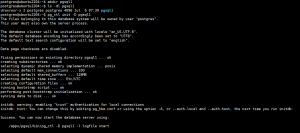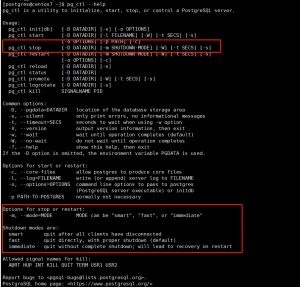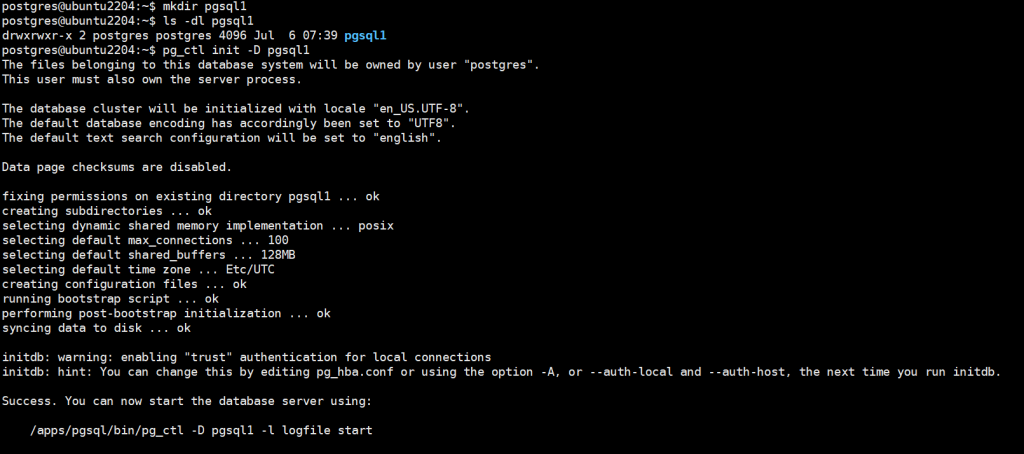1、案例: 利用 Filebeat 收集日志到 ELasticsearch
默认生成的索引名称为 filebeat-<版本>-<时间>*
1.1、修改配置
root@web01:~# vim /etc/filebeat/filebeat.yml
filebeat.inputs:
- type: log
id: my-apache-id
enabled: true
paths:
- /var/log/apache2/access.log
output.elasticsearch:
hosts: ["192.168.1.101:9200"]1.2、启动服务
root@web01:~# systemctl enable --now filebeat.service
1.3、head 插件查看索引
![图片[1]-利用 Filebeat 收集日志(中)-李佳程的个人主页](http://www.lijiach.com/wp-content/uploads/2023/01/image-55.png)
1.4、通过 Kibana 查看收集的日志信息
![图片[2]-利用 Filebeat 收集日志(中)-李佳程的个人主页](http://www.lijiach.com/wp-content/uploads/2023/01/image-56.png)
![图片[3]-利用 Filebeat 收集日志(中)-李佳程的个人主页](http://www.lijiach.com/wp-content/uploads/2023/01/image-57.png)
![图片[4]-利用 Filebeat 收集日志(中)-李佳程的个人主页](http://www.lijiach.com/wp-content/uploads/2023/01/image-58.png)
2、案例: 自定义索引名称收集所有系统日志到 ELasticsearch
2.1、修改配置
范例:收集系统日志
root@web01:~# vim /etc/rsyslog.conf
.....
*.* /var/log/system.log
root@web01:~# systemctl restart rsyslog.service
root@web01:~# vim /etc/filebeat/filebeat.yml
filebeat.inputs:
- type: log
enabled: true #开启日志
paths:
- /var/log/syslog.log #指定收集的日志文件
include_lines: ['failed', 'nginx'] #只过滤指定包含关健字的日志
#exclude_lines: ['Debug'] #排除包含关健字的日志
#paths: /var/log/*
#exclude_files: ['.gz$'] #排除文件名包含关健字的日志文件
output.elasticsearch:
hosts: ["192.168.1.101:9200"] #指定ES集群服务器地址和端口
index: "test-%{[agent.version]}-%{+yyyy.MM.dd}" #自定义索引名称
setup.ilm.enabled: false #关闭索引生命周期ilm功能,默认开启时索引名称只能为filebeat-*
setup.template.name: "test" #定义模板名称,要自定义索引名称,必须指定此项,否则无法启动
setup.template.pattern: "test-*" #定义模板的匹配索引名称,要自定义索引名称,必须指定此项,否则无法启动
#默认情况下 Filebeat 写入到 ES 的索引分片为1,如果需要修订分片,可以通过如下实现
#注意:如果模板已经存在,需要利用插件先删除模板和索引才能生效
setup.template.settings:
index.number_of_shards: 3
index.number_of_replicas: 0
范例:收集Nginx的访问日志
root@web01:~# vim /etc/filebeat/filebeat.yml
filebeat.inputs:
- type: log
enabled: true #开启日志
paths:
- /var/log/nginx/access.log #指定收集的日志文件
output.elasticsearch:
hosts: ["192.168.1.101:9200"] #指定ES集群服务器地址和端口
index: "nginx-access-%{[agent.version]}-%{+yyyy.MM.dd}" #自定义索引名称
setup.ilm.enabled: false
setup.template.name: "nginx" #定义模板名称,要自定义索引名称,必须指定此项,否则无法启动
setup.template.pattern: "nginx-*" #定义模板的匹配索引名称,要自定义索引名称,必须指定此项,否则无法启动2.2、插件查看索引
![图片[5]-利用 Filebeat 收集日志(中)-李佳程的个人主页](http://www.lijiach.com/wp-content/uploads/2023/01/image-60.png)
2.3、通过kibana查看收集的日志信息
创建索引模式,然后查看
![图片[6]-利用 Filebeat 收集日志(中)-李佳程的个人主页](http://www.lijiach.com/wp-content/uploads/2023/01/image-59.png)
3、案例: 利用 Filebeat 收集 Nginx Json 格式日志到Elasticsearch
生产环境中我们经常需要获取Web访问用户的信息,比如:来源的IP是哪个地域,网站的PV、UV、状态码、访问时间等等;所以需要收集的Nginx访问日志
3.1、安装 nginx 配置访问日志使用 Json格式
# 修改nginx访问日志为Json格式
root@web01:~# vim /etc/nginx/nginx.conf
log_format access_json '{"@timestamp":"$time_iso8601",'
'"host":"$server_addr",'
'"clientip":"$remote_addr",'
'"size":$body_bytes_sent,'
'"responsetime":$request_time,'
'"upstreamtime":"$upstream_response_time",'
'"upstreamhost":"$upstream_addr",'
'"http_host":"$host",'
'"uri":"$uri",'
'"domain":"$host",'
'"xff":"$http_x_forwarded_for",'
'"referer":"$http_referer",'
'"tcp_xff":"$proxy_protocol_addr",'
'"http_user_agent":"$http_user_agent",'
'"status":"$status"}';
access_log /var/log/nginx/access_json.log access_json;
error_log /var/log/nginx/error.log;
# 默认开启nginx的错误日志,但如果是ubuntu,还需要修改下面行才能记录错误日志
root@web01:~# vim /etc/nginx/sites-available/default
location / {
# First attempt to serve request as file, then
# as directory, then fall back to displaying a 404.
# try_files $uri $uri/ =404; # 将此行注释
}
root@web01:~# tail -f /var/log/nginx/access_json.log
192.168.1.1 - - [03/Jan/2023:11:18:19 +0000] "GET /favicon.ico HTTP/1.1" 404 197 "-" "Mozilla/5.0 (Windows NT 10.0; WOW64) AppleWebKit/537.36 (KHTML, like Gecko) Chrome/80.0.3987.87 Safari/537.36 SE 2.X MetaSr 1.0"
192.168.1.105 - - [03/Jan/2023:11:18:25 +0000] "GET / HTTP/1.1" 200 12 "-" "Elastic-Heartbeat/7.17.8 (linux; amd64; 692b4aac606e457bd2f5ef092d2d23c2fa950828; 2022-12-03 00:38:18 +0000 UTC)"
192.168.1.105 - - [03/Jan/2023:11:18:35 +0000] "GET / HTTP/1.1" 200 12 "-" "Elastic-Heartbeat/7.17.8 (linux; amd64; 692b4aac606e457bd2f5ef092d2d23c2fa950828; 2022-12-03 00:38:18 +0000 UTC)"
192.168.1.105 - - [03/Jan/2023:11:18:45 +0000] "GET / HTTP/1.1" 200 12 "-" "Elastic-Heartbeat/7.17.8 (linux; amd64; 692b4aac606e457bd2f5ef092d2d23c2fa950828; 2022-12-03 00:38:18 +0000 UTC)"
192.168.1.105 - - [03/Jan/2023:11:18:55 +0000] "GET / HTTP/1.1" 200 12 "-" "Elastic-Heartbeat/7.17.8 (linux; amd64; 692b4aac606e457bd2f5ef092d2d23c2fa950828; 2022-12-03 00:38:18 +0000 UTC)"
192.168.1.105 - - [03/Jan/2023:11:19:05 +0000] "GET / HTTP/1.1" 200 12 "-" "Elastic-Heartbeat/7.17.8 (linux; amd64; 692b4aac606e457bd2f5ef092d2d23c2fa950828; 2022-12-03 00:38:18 +0000 UTC)"
192.168.1.105 - - [03/Jan/2023:11:19:15 +0000] "GET / HTTP/1.1" 200 12 "-" "Elastic-Heartbeat/7.17.8 (linux; amd64; 692b4aac606e457bd2f5ef092d2d23c2fa950828; 2022-12-03 00:38:18 +0000 UTC)"
192.168.1.105 - - [03/Jan/2023:11:19:25 +0000] "GET / HTTP/1.1" 200 12 "-" "Elastic-Heartbeat/7.17.8 (linux; amd64; 692b4aac606e457bd2f5ef092d2d23c2fa950828; 2022-12-03 00:38:18 +0000 UTC)"
{"@timestamp":"2023-01-03T11:19:35+00:00","host":"192.168.1.105","clientip":"192.168.1.105","size":12,"responsetime":0.000,"upstreamtime":"-","upstreamhost":"-","http_host":"192.168.1.105","uri":"/index.html","domain":"192.168.1.105","xff":"-","referer":"-","tcp_xff":"-","http_user_agent":"Elastic-Heartbeat/7.17.8 (linux; amd64; 692b4aac606e457bd2f5ef092d2d23c2fa950828; 2022-12-03 00:38:18 +0000 UTC)","status":"200"}
{"@timestamp":"2023-01-03T11:19:45+00:00","host":"192.168.1.105","clientip":"192.168.1.105","size":12,"responsetime":0.000,"upstreamtime":"-","upstreamhost":"-","http_host":"192.168.1.105","uri":"/index.html","domain":"192.168.1.105","xff":"-","referer":"-","tcp_xff":"-","http_user_agent":"Elastic-Heartbeat/7.17.8 (linux; amd64; 692b4aac606e457bd2f5ef092d2d23c2fa950828; 2022-12-03 00:38:18 +0000 UTC)","status":"200"}
{"@timestamp":"2023-01-03T11:19:55+00:00","host":"192.168.1.105","clientip":"192.168.1.105","size":12,"responsetime":0.000,"upstreamtime":"-","upstreamhost":"-","http_host":"192.168.1.105","uri":"/index.html","domain":"192.168.1.105","xff":"-","referer":"-","tcp_xff":"-","http_user_agent":"Elastic-Heartbeat/7.17.8 (linux; amd64; 692b4aac606e457bd2f5ef092d2d23c2fa950828; 2022-12-03 00:38:18 +0000 UTC)","status":"200"}
root@web01:~# tail /var/log/nginx/error.log
2023/01/03 10:52:53 [emerg] 21596#21596: bind() to [::]:80 failed (98: Address already in use)
2023/01/03 10:52:53 [emerg] 21596#21596: bind() to 0.0.0.0:80 failed (98: Address already in use)
2023/01/03 10:52:53 [emerg] 21596#21596: bind() to [::]:80 failed (98: Address already in use)
2023/01/03 10:52:53 [emerg] 21596#21596: bind() to 0.0.0.0:80 failed (98: Address already in use)
2023/01/03 10:52:53 [emerg] 21596#21596: bind() to [::]:80 failed (98: Address already in use)
2023/01/03 10:52:53 [emerg] 21596#21596: bind() to 0.0.0.0:80 failed (98: Address already in use)
2023/01/03 10:52:53 [emerg] 21596#21596: bind() to [::]:80 failed (98: Address already in use)
2023/01/03 10:52:53 [emerg] 21596#21596: still could not bind()
2023/01/03 11:14:06 [emerg] 23468#23468: unknown log format "access_json" in /etc/nginx/nginx.conf:41
2023/01/03 11:18:19 [error] 23629#23629: *17 open() "/var/www/html/favicon.ico" failed (2: No such file or directory), client: 192.168.1.1, server: _, request: "GET /favicon.ico HTTP/1.1", host: "192.168.1.105"
3.2、修改 Filebeat 配置文件
root@web01:~# vim /etc/filebeat/filebeat.yml
filebeat.inputs:
- type: log
enabled: true
paths:
- /var/log/nginx/access_json.log
json.keys_under_root: true #默认false会将全部数据存储至message字段,改为true则会以
Json格式存储
json.overwrite_keys: true #设为true,覆盖默认的message字段,使用自定义json格式中的key
tags: ["nginx-access"] #指定tag,用于分类
- type: log
enabled: true
paths:
- /var/log/nginx/error.log
tags: ["nginx-error"]
output.elasticsearch:
hosts: ["192.168.1.101:9200","192.168.1.102:9200","192.168.1.103:9200"]
indices:
- index: "nginx-access-%{[agent.version]}-%{+yyy.MM.dd}"
when.contains:
tags: "nginx-access" #如果记志中有access的tag,就记录到nginx-access的索引中
- index: "nginx-error-%{[agent.version]}-%{+yyy.MM.dd}"
when.contains:
tags: "nginx-error" #如果记志中有error的tag,就记录到nginx-error的索引中
setup.ilm.enabled: false #关闭索引生命周期ilm功能,默认开启时索引名称只能为filebeat-*
setup.template.name: "nginx" #定义模板名称,要自定义索引名称,必须指定此项,否则无法启动
setup.template.pattern: "nginx-*" #定义模板的匹配索引名称,要自定义索引名称,必须指定此项,否则无法启动
root@web01:~# systemctl restart filebeat.service
3.3、插件查看索引
![图片[7]-利用 Filebeat 收集日志(中)-李佳程的个人主页](http://www.lijiach.com/wp-content/uploads/2023/01/image-61.png)
3.4、在 Kibana 验证日志数据
创建索引模式
![图片[8]-利用 Filebeat 收集日志(中)-李佳程的个人主页](http://www.lijiach.com/wp-content/uploads/2023/01/image-62.png)
![图片[9]-利用 Filebeat 收集日志(中)-李佳程的个人主页](http://www.lijiach.com/wp-content/uploads/2023/01/image-63.png)
![图片[10]-利用 Filebeat 收集日志(中)-李佳程的个人主页](http://www.lijiach.com/wp-content/uploads/2023/01/image-64.png)
![图片[11]-利用 Filebeat 收集日志(中)-李佳程的个人主页](http://www.lijiach.com/wp-content/uploads/2023/01/image-65.png)
© 版权声明
文章版权归作者所有,未经允许请勿转载。
THE END






















